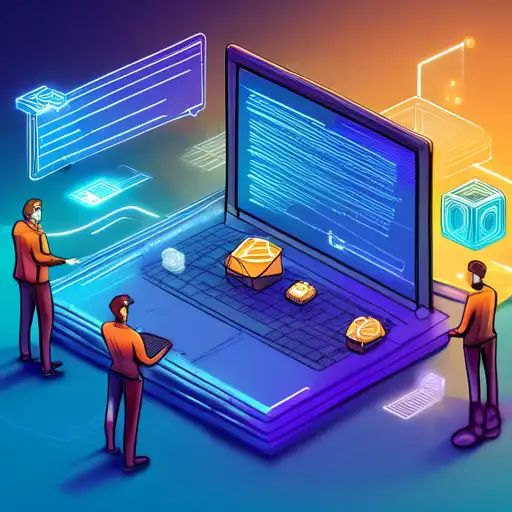Introduction to Smart Contracts
Smart contracts represent a pivotal innovation in blockchain technology, automating agreements without the need for intermediaries. These self-executing contracts with the terms of the agreement directly written into code have revolutionized how we think about trust and transactions in the digital age.
How Smart Contracts Work
At their core, smart contracts operate on the blockchain, ensuring transparency, security, and immutability. When predefined conditions are met, the contract automatically executes the agreed-upon actions, whether it's transferring funds, registering a property, or any other contractual obligation.
Benefits of Smart Contracts
- Efficiency: Automating processes reduces the time and cost associated with traditional contracts.
- Security: Blockchain's decentralized nature makes smart contracts highly secure against fraud.
- Trust: With no need for intermediaries, parties can transact directly, fostering trust through transparency.
Challenges and Considerations
Despite their advantages, smart contracts are not without challenges. Issues such as coding errors, legal recognition, and scalability must be addressed to fully realize their potential. For more insights on blockchain's scalability, explore our dedicated article.
Real-World Applications of Smart Contracts
From finance to real estate, smart contracts are finding applications across various sectors. In the financial sector, they enable instant, secure transactions. In real estate, they streamline property sales by automating the transfer of ownership upon payment.
Future of Smart Contracts
As blockchain technology evolves, so too will the capabilities and applications of smart contracts. With advancements in AI and IoT, the potential for smart contracts to automate complex, multi-party agreements is boundless.
For those interested in diving deeper into blockchain technology, check out our comprehensive guide.
Conclusion
Smart contracts are a cornerstone of blockchain technology, offering a secure, efficient, and transparent way to execute agreements. As the technology matures, we can expect to see even broader adoption across industries, reshaping how we think about contracts and trust in the digital world.
